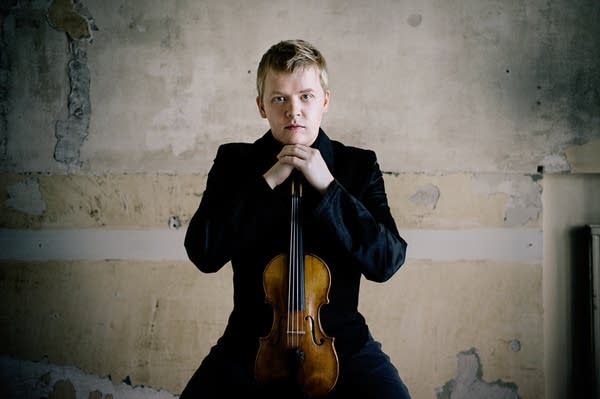As our society changes, so does the way we consume music. In the age of instant music streaming and curated playlists, artists continually rely on touring and merchandise sales to make a living.
How does this shifting dynamic affect our world?
A recent op-ed in the Guardian showcases the way in which classical musicians touring can impact climate change.
Classical concerts consume energy in several ways: patrons traveling to the venue, the concert hall's lighting and heating costs, and the artist traveling via plane, car or bus to venues across the country or even the globe.
Some classical artists are already changing their routine to become more environmentally conscious. Violinist Patricia Kopatchinskaja, former artistic partner of the Saint Paul Chamber Orchestra, organizes her schedule in a way to allow for train travel as much as possible in order to avoid taking flights.
She also partnered with the Orchester des Wandels (the Orchestra of Change) to perform works inspired by climate change, donating proceeds to environmental organizations.
Italian composer and pianist Ludovico Einaudi emphasized how important it is to bring awareness to environmental change in an interview with Limelight Magazine.
"Nobody can stay silent in front of those situations," he said. "We are already experiencing the consequences of climate change."
In 2016, he partnered with Greenpeace to perform on the Arctic Ocean, showing melting icebergs in the background.
Other musicians and composers inject environmental issues into the music they write. Composer Lei Lang won the 2020 Grawmeyer Award for his work A Thousand Mountains, a Million Streams, which meditates on the loss of landscapes of cultural and spiritual dimensions due to climate change, and how we must work to preserve them for future generations.
While environmental activism and support is shown by performers and composers, there are ways in which music appreciators and concertgoers also can positively change their habits. First, support arts and music organizations that make sustainability a part of their mission. By supporting these groups and not others, you are choosing to engage with classical music in a sustainable way.
Look at your favorite orchestra's website to see if it is LEED certified or supports environmental causes, or contact your local orchestra to encourage it to become more sustainable.
Second, change the way you get to a music venue. Carpool with friends, or take the bus or train. Many concert halls have bike racks outside as well.
Third, don't print your ticket. Show it to an usher on your phone, and be sure to turn it off when you get inside — it saves battery life (and prevents the dreaded text tone during a Mozart symphony).
Classical music is one of the greatest joys on our planet. We need to make changes in order to keep it that way.
Love the music?
Show your support by making a gift to YourClassical.
Each day, we’re here for you with thoughtful streams that set the tone for your day – not to mention the stories and programs that inspire you to new discovery and help you explore the music you love.
YourClassical is available for free, because we are listener-supported public media. Take a moment to make your gift today.











